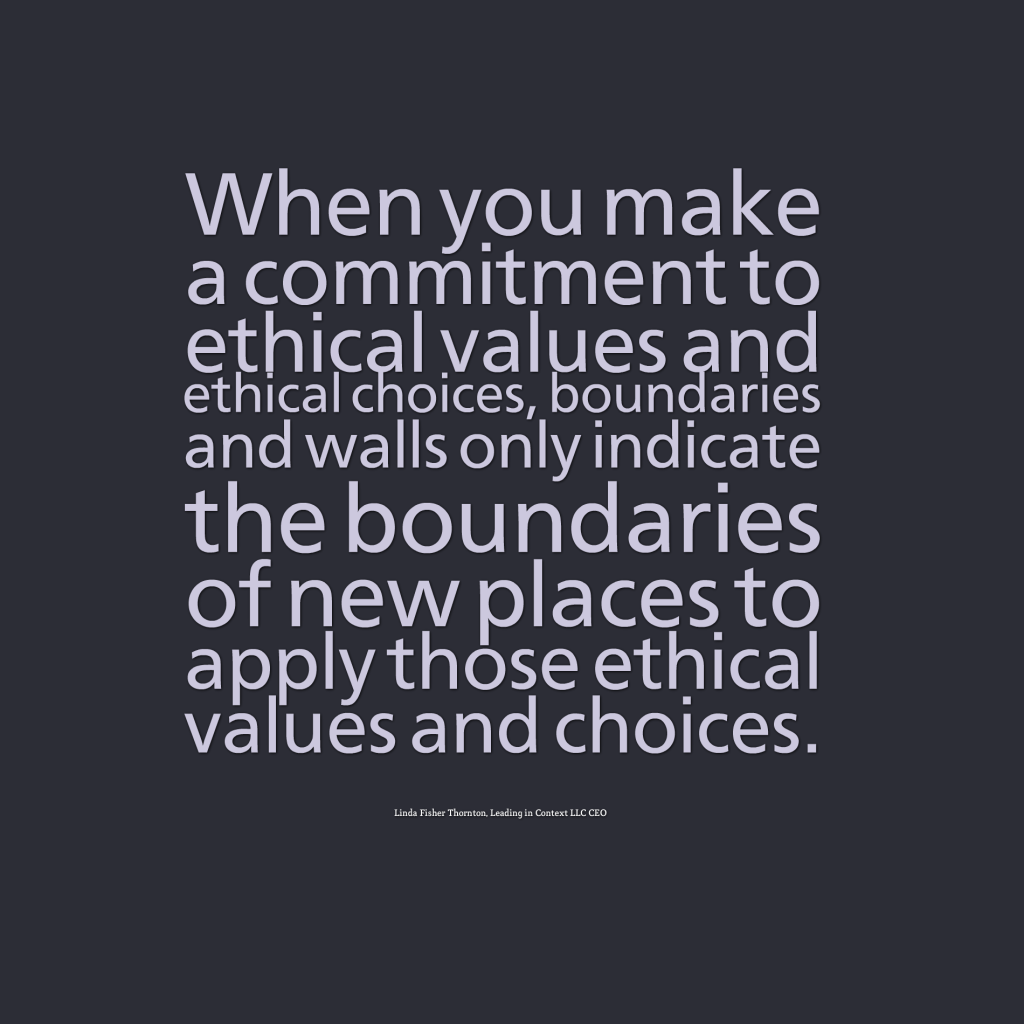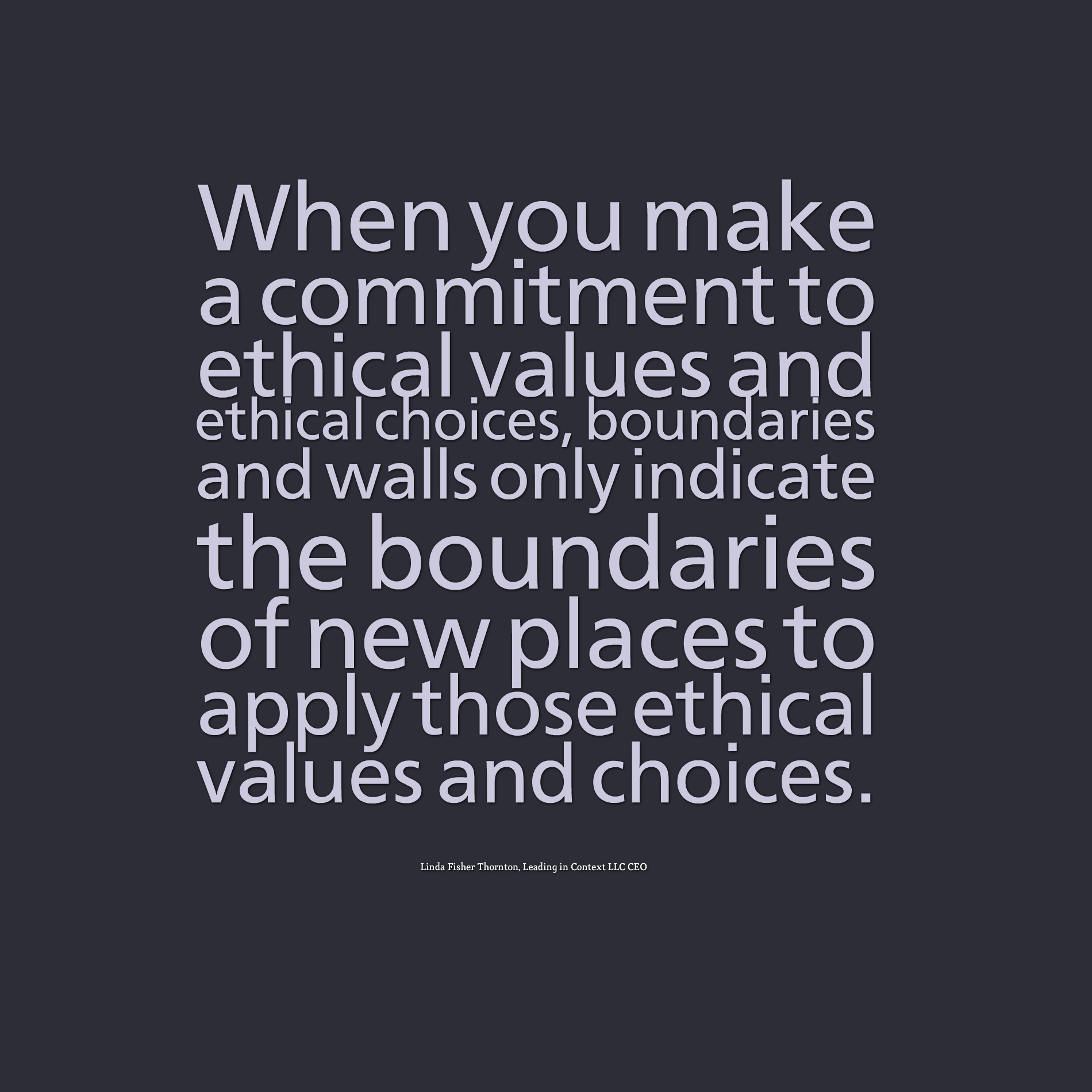By Linda Fisher Thornton
This week I’m sharing an edited compilation of three previously published posts that are relevant for leaders and organizations wanting to honor human rights in chaotic times. The first addresses the risk of excluding any humans from our organizational statement of inclusion. The second explains why values transcend borders and boundaries, and the third explains that how we perceive people who are ‘different’ impacts our behavior and our ethics.
Inclusion: The Power of Regardless
Some inclusion statements begin with “we respect all people and treat them fairly, regardless of…” and then include a long list of differences that we should overcome. These lists are hard to communicate, difficult to remember and ever-changing as we expand our understanding of human rights.
Why not aim for where the statement is going, rather than where it’s been? We can keep adding to that “regardless” list until it becomes too unwieldy to use, or we can simply say now:
“We respect all people and treat them fairly, regardless.”

That’s the message behind the UN Global Declaration of Human Rights, championed by Eleanor Roosevelt.
I know what you might be thinking. Not everyone is ready to make this leap all at once. What we can do is make sure that we are moving our organizations in this direction with all due haste, knowing that this is the leadership mindset that is required of us in a global society, regardless.
Seeing Beyond Borders and Walls
When you make a commitment to ethical values and ethical choices, boundaries and walls only indicate the boundaries of new places to apply those ethical values and choices. Beyond them, ethical values matter just as much as they matter within your own walls. You could argue that they matter more, because you are stepping into other cultures and ways of life and need to take special care to show respect.

Any argument that we can be disrespectful or harmful to others who live outside of our borders is based on flawed thinking, self-interest, myopia and a lack of moral awareness.
Ethical leaders see beyond walls. They don’t dehumanize people to improve their own position.
Ethical leaders think beyond themselves on a global scale. They don’t excuse their own or anyone else’s bad behavior or unethical choices
Ethical Leadership: Perceptions of “Different” Impact Our Behavior
How we think as leaders directly impacts our behavior by compelling us to act based on the value judgments we make. Today’s post focuses on how we perceive “different,” how our perceptions change our leadership, and how our leadership changes the work environment in ways that may lead to unethical behavior.
Unfortunately, we don’t always use the word “different” to describe things and people and ideas that are new to us. We often use less friendly words that indicate that the person or idea is wrong, misguided or harmful. Let’s check our thinking about “different” for a moment, and consider how our perception impacts our behavior and our ethics.
If we are one of the leaders who thinks that “different” ideas and people are interesting/good/essential, then we will be open to new ideas and new information and will want to surround ourselves with people who represent different ways of thinking. We will see the value in differences of opinion. We will tolerate some level of chaos and see it as part of the natural process of getting great work done. Opportunities will be quickly recognized and acted on, leading to competitive advantage.
If we are a leader who thinks that “different” ideas and people are dangerous/bad/wrong, then we will be closed to new ideas and new information and will want to surround ourselves with people who think and act very much like we do. We will see differences of opinion as threatening the fabric of the organization. Our organization will begin to become obsolete as groupthink sets in. We will discourage new and different perspectives and will see them as blatant insubordination. Employees will leave as they find they are not able to do their best work in the “copy me” culture. Missed opportunities and complications from employee resistance to “not being allowed to think for themselves” will take a toll on the profitability and viability of the business. Employees will be more likely to make unethical decisions in the restrained environment that does not allow for discussion of grey areas during ethical challenges.
Which type of leader engages employees? Inspires the best work? Is rewarded in your organization? Which of these two approaches is ethical?
